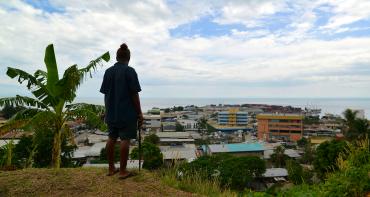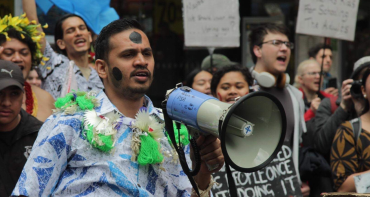Migration and development experts from the Commonwealth and beyond are meeting in Kingston, Jamaica, from 2 to 4 July to examine the costs and benefits of migration in small states.
The delegates from Africa, the Caribbean and the Pacific will share research findings, best practices and experiences on migration and development in small states.
Participants include government officials, policy-makers, academics and representatives of regional and international organisations.
While many other conferences have looked at the human rights and international law aspects of migration, this conference will focus on the economic and development implications for small states.
It will highlight the costs and benefits of migration and examine the role that government policy can play in maximising the advantages while minimising the drawbacks. It will also identify areas that require international advocacy and practical support.
| Diaspora: people settled far from their esta |
The topics to be covered will include international recruitment, diaspora remittances and investment and entrepreneurship. There will be specific research presentations on The Gambia, Guyana, Jamaica, Lesotho, Samoa and Tonga.
Jamaica’s Minister of Foreign Affairs and Foreign Trade, A J Nicholson, will deliver the opening address.
The Commonwealth Secretariat has organised the meeting in collaboration with the Shridath Ramphal Centre for International Trade Law, Policy and Services at the University of the West Indies (UWI).
In 2009 and 2011, Commonwealth Heads of Government gave the Secretariat a mandate to examine ways of maximising the economic and social benefits of migration while addressing its challenges.
Dr Cyrus Rustomjee, Director of Economic Affairs at the Secretariat, said that with 60 per cent of Commonwealth members being small states, the Secretariat has a unique appreciation of their challenges. He added that the Secretariat has been a lead advocate for these countries, both in the international arena and at the local level, partnering with them to build their resilience in order to make a difference to the lives of their citizens.
He noted that small states are especially vulnerable to the impact of migration because they have small populations, small markets and limited opportunities for skilled workers.
“On the one hand, migration can result in a high percentage loss of the working population from an already small base as in the case of teachers and nurses, but on the other hand, migration has a number of advantages and opportunities. These include funds that family members send back to their home countries and the potential to use the diaspora as a source of expertise and to fund new investments,” explained Dr Rustomjee.
In addition to addressing these issues delegates will see a screening of ‘Forward Home: The Power of the Caribbean Diaspora’, a documentary shot in nine locations across the globe, which reveals the economic power of Caribbean overseas communities.
Dr Keith Nurse, Director of the Shridath Ramphal Centre, UWI, said the diasporic economy has emerged to be a key source of entrepreneurship and innovation in the Caribbean. He noted that many Caribbean firms have been able to go global by strategically using the diaspora to enter new markets.
Outcomes of the meeting will form the basis for practical policy options for small states.
These outcomes will be presented at the Second Global Biennial Conference on Small States, scheduled for 17-18 September 2012 in London, UK.



